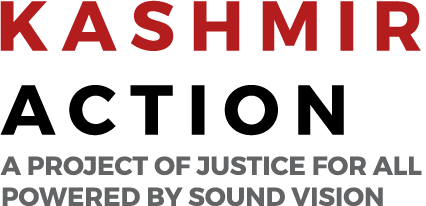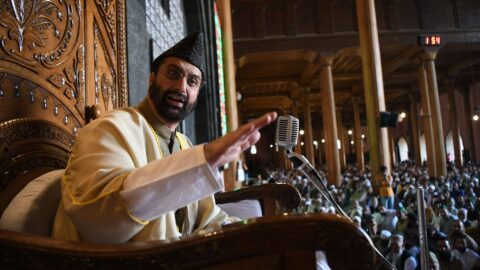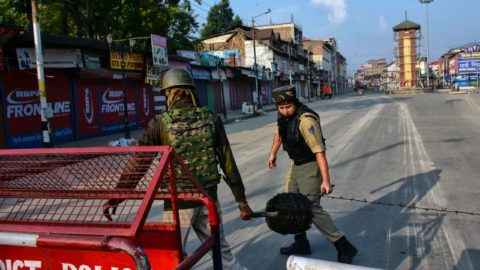On December 27th, Mirwaiz Muhammad Umar Farooq, was barred from leaving his house to lead…
Being Well Educated is Hazardous in Kashmir by Tazeen Hasan
By Tazeen Hasan
The Indian govt invoked the public Safety Act against the journalist Sajjad Gul, saying he is well educated and may provoke the public against the government on social media, so his case should be non-bailable.
Photo courtesy: Sajjad Gul/Twitter
Imagine a democracy where posting a local video on social media is an offence. Adding insult to injury is the fact that these charges are non-bailable under a law that Amnesty International long calls a lawless law.
Sajjad Gul, 29, a Master’s student in Journalism at the University of Kashmir, and a local reporter at the online media outlet Kashmir Walla, was arrested on January 6 on the accusation that he posted a video of the relatives of a slain militant raising “Anti-India” slogans.
According to a recent report by Indian Express, a reputable Indian national media outlet,
“Three FIRs were registered against him – two based on complaints by police. Nonetheless, the judicial magistrate’s court granted him bail on January 15, but he was booked under the Public Safety Act (PSA) the next day”.
FIR, or First Information Report, is a document prepared by Indian police noting serious offences.
The PSA has been used since the late 1970s to crush any political resistance against the state. Individuals booked under this law can not apply for bail and can be kept in custody for two years without any judicial procedure or trial.
Ironically, after completing the maximum years of detention, the victim of this brutal and lawless act is usually arrested again outside the gate. This vicious cycle continues until the Indian government finally decides the victim is no longer a threat to its colonial project.
A.S. Dalut, the former chief of Indian intelligence agencies Research and Analysis Wing (RAW) and Intelligence Bureau (IB), writes in his 2015-memoir “Kashmir: the Vajpayee Years” that they [Indian authorities] used to arrest political prisoners outside the prison gate.
According to fair trial standards, prolonged detention of prisoners without trial is arbitrary.
The Indian government is a signatory of several international treaties which obligate it to follow international human rights and humanitarian law.
The whole Kashmiri leadership, ie: political leaders, journalists, human rights defenders, and lawyers are currently detained under lawless laws like the Unlawful Activities Prevention Act (UAPA), the PSA, or under fabricated charges of “money laundering” and having “links” with cross border terrorist organizations.
Since the arrest of Khurram Parvez, the global award-winning human rights defender, the Indian government has intensified its crackdown against Kashmiri civil society to an unprecedented level.
The detainee’s crime is nothing but their ability to mobilize the people of Kashmir.
The Indian government is scared of educated people in Kashmir.
As someone commented on Twitter, “being well educated is hazardous in Kashmir.”




